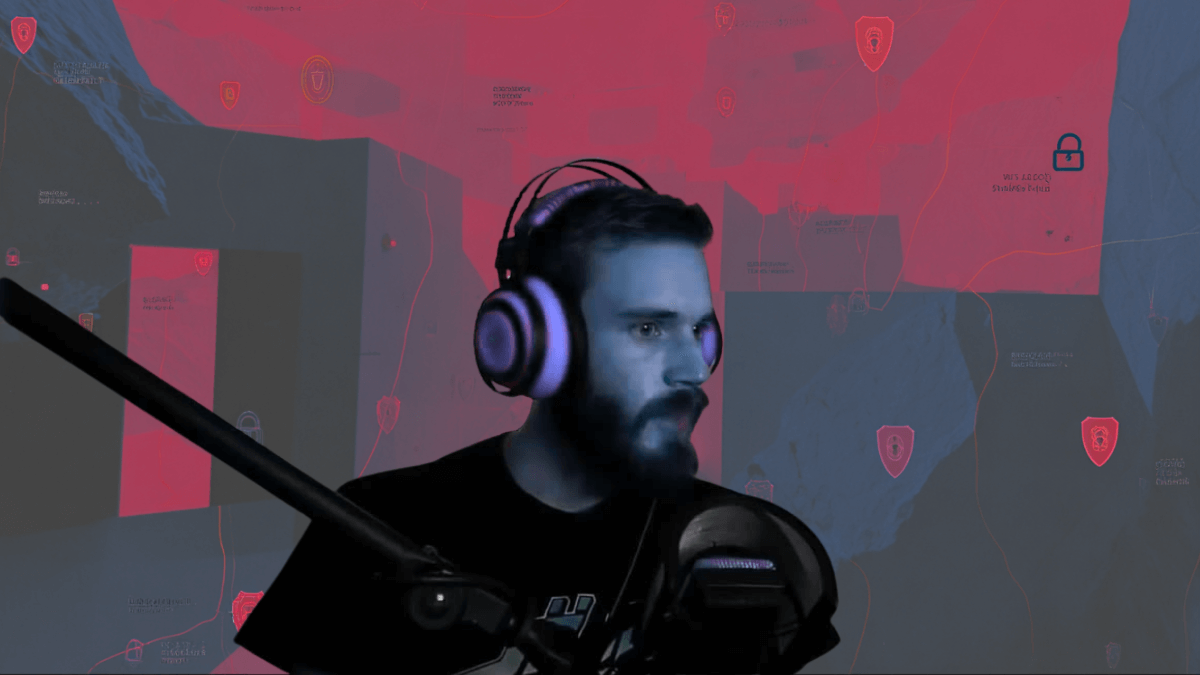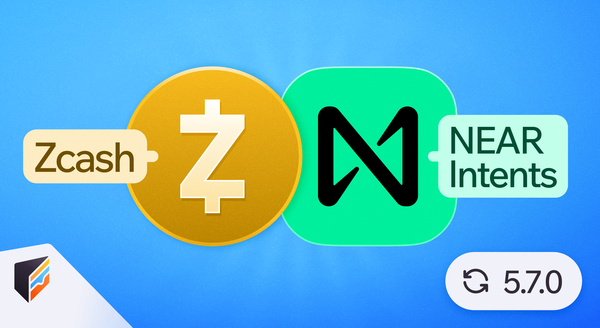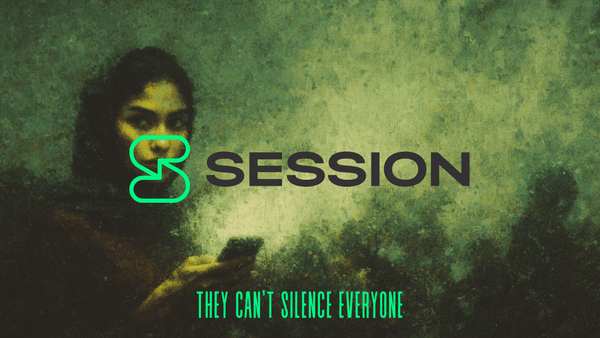PewDiePie Just Red-Pilled 110 Million People on Digital Freedom
PewDiePie, the Swedish creator who built YouTube's biggest individual following by screaming at video games, just delivered one of the most impactful privacy tutorials of 2025. And he did it while wearing a tinfoil hat.

In his latest video "I'm DONE with Google," Felix managed to explain de-googling, self-hosting, and digital sovereignty to 110 million subscribers without once sounding like a paranoid Linux evangelist. The response has been electric.
The privacy community is losing its collective mind and rightfully so. When @AutismCapital tweets "Oh my God, PewDiePie is now in his de-Googling arc. First Linux, now this. It brings a tear to the eye," you know something significant just happened.
Oh my God, PewDiePie is now in his de-Googling arc. First Linux, now this. It brings a tear to the eye. 🥲 pic.twitter.com/68g9vGqomg
— Autism Capital 🧩 (@AutismCapital) June 26, 2025
For years, privacy advocates have been preaching about surveillance capitalism while Google harvested humanity's data like a digital plantation. The message was always correct, but it rarely broke through to mainstream audiences. Tech YouTubers, security researchers, and digital rights activists have been making these same points for years, but their reach was limited to people already concerned about privacy.
PewDiePie's video changes the scale of that conversation entirely.
The genius of Felix's approach is that he doesn't lecture. He shares his journey. He talks about switching to DuckDuckGo, dumping Chrome for Firefox, self-hosting his password manager with Vaultwarden, and running Nextcloud for file storage. He makes it seem achievable because, frankly, it is.
But here's what makes this moment so powerful: PewDiePie didn't become a privacy advocate by reading Stallman manifestos. He got here by following the same path millions of others are on realizing that Big Tech's "free" services come with a price tag measured in human dignity.
The memes started immediately. Someone posted a Matrix reference with "PEWDIEPIE ESCAPING THE MATRIX", and noted he'd just created "the best ad for privacy and open source software in the entire universe (completely based)."
pewdiepie is self hosting his password manager 😭
— luffy (@0xluffyb) June 26, 2025
nowadays comp sci grads don't even know how to host shit pic.twitter.com/xzlnkHIPe4
pewdiepie just did the best ad for privacy and open source software in the entire universe (completely based)... but he forgot one pic.twitter.com/pcuedGCvG8
— Cristian Garcia (@cgarciae88) June 27, 2025
This is what influence looks like when used responsibly. When you have 110 million people hanging on your every word, you can either sell them energy drinks or teach them how to reclaim their digital lives. Felix chose digital liberation.
Let's be practical about this. You don't need to go full cypherpunk overnight. Start small. The journey matters more than the destination, and every step away from surveillance capitalism is a victory.
For beginners, the Proton Suite provides an easy entry point encrypted email, calendar, VPN, and drive that actually protects your data. But diversification is key. Don't put all your eggs in one basket, even if that basket is privacy-focused.
For the ambitious, consider this progression:
- VPN: Mullvad or IVPN (no logs, anonymous payment)
- Storage: Ente, Nextcloud, or Immich for photos
- Calendar: Tuta Calendar, Nextcloud, or EteSync
- Passwords: Bitwarden or KeePassXC
- Email aliasing: SimpleLogin or AnonAddy
For the truly committed, self-hosting is the final boss of digital independence. Run your own Nextcloud instance, self-host Vaultwarden for passwords, and use Tor for ultimate privacy. It's not as hard as it sounds, and PewDiePie just proved it.
Essential Linux apps for your de-googling journey: AppImage Launcher, Back in Time, VeraCrypt, VLC, OBS, KeePassXC, your VPN client of choice, Syncthing, and note-taking apps like Obsidian or Standard Notes (which is my favorite).
Remember the golden rules of 2FA: enable it everywhere, only use FOSS apps that let you export your codes, and backup those codes religiously.
When you're ready to break up with Google, don't burn bridges. Use Google Takeout to backup everything, set up email forwarding to your new private address, enable strong 2FA (preferably with hardware keys), and gradually migrate your digital life.
Think of it this way: using Windows is like thinking out loud in public. Not using a VPN is like broadcasting your home address to everyone. Gmail and WhatsApp are like discussing private matters in the town square. Chrome is like visiting the library naked.
For secure messaging, stick to Signal, Session, or SimpleX Chat. Each offers different trade-offs between usability and security.
The beautiful irony is that PewDiePie made this video on YouTube, Google's platform, while systematically explaining how to escape Google's surveillance apparatus. It's like hosting a prison break workshop in the warden's office. Hopefully he can opt out of Youtube one day as well.
What makes this moment special isn't just the reach it's the messenger. PewDiePie isn't selling anything. He's not hawking courses or affiliate links. He's just a guy who got tired of being a product and decided to become a customer again. That authenticity cuts through the noise in ways that corporate privacy campaigns never could.
The privacy movement just got its most powerful evangelist, and he comes with 110 million followers who trust him enough to follow his Linux tutorials and de-googling guides. If even a fraction of his audience takes this seriously, we're looking at the largest mass digital migration in internet history.
For Google, this represents an existential nightmare wrapped in a Swedish accent. Even if just 1% of PewDiePie's audience follows through on a single recommendation switching to Firefox, trying DuckDuckGo, or installing a VPN that's over a million people taking their first step away from Google's ecosystem.
The company has spent decades conditioning users to think privacy and convenience are mutually exclusive. That you need to choose between security and usability. PewDiePie just demonstrated that's bullshit. He's running GrapheneOS, self-hosting password managers, and using privacy-focused alternatives while maintaining the same workflow that built a media empire.
When someone with PewDiePie's reach casually mentions that switching from Chrome to Firefox takes thirty seconds, that's not just a browser recommendation. That's millions of people suddenly realizing they've been accepting surveillance as the price of admission to the internet, when the door was never actually locked.
Google's entire business model depends on people believing they have no choice. That video just gave 110 million people a roadmap to prove otherwise.
Google built their empire on the assumption that convenience would always trump privacy. That people would trade their digital souls for free email and instant search results. For a while, they were right.
But things change. People wake up. And sometimes, just sometimes, the person doing the waking up happens to have 110 million subscribers and a tinfoil hat.
The revolution will be streamed. And it just got a hell of a lot more Swedish.








